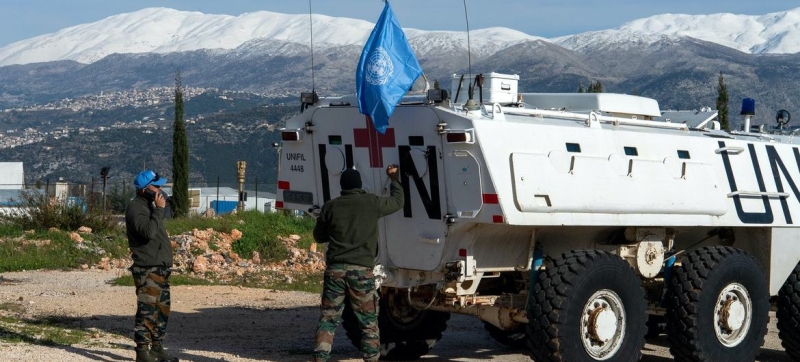
Secretary-General stresses that attacks on UNIFIL personnel and mission facilities are unacceptable (file photo). UN chief on Lebanon: Attacks on peacekeepers could constitute war crime Peace and Security
Following the deliberate breach of the UN Interim Force in Lebanon by Israel Defense Forces (IDF) armored vehicles on Sunday, the Secretary-General reiterated that the safety of UN personnel and property must be guaranteed.
António Guterres paid tribute to UNIFIL personnel, adding that “peacekeepers remain in all positions and the UN flag continues to fly.”
Violations of International Law
The Secretary-General stressed that attacks on UNIFIL personnel and mission facilities are unacceptable. “Attacks on peacekeepers are a violation of international law, including international humanitarian law. They may constitute a war crime,” the statement said.
The UN mission in the area is mandated by the Security Council to monitor the cessation of hostilities between Israel and Hezbollah after the 2006 war, oversee the withdrawal of Israeli troops from southern Lebanon and assist the Lebanese government in restoring its control over the territory.
Read also:
EXPLAIN | Security Council Resolution 1701, the Blue Line and UNIFIL
Guterres called on all parties, including the IDF, to “refrain from any action” that puts UN peacekeepers at risk. He also reiterated his call for an end to hostilities and the full implementation of Security Council Resolution 1701.
Assistance to civilians
The situation in southern Lebanon has been of grave concern in recent days due to the high number of shellings, bombings, exchanges of fire, as well as attacks on UN forces, UNIFIL spokesman Andrea Tenenti told UN News.
He said it was especially important for the mission to monitor at this time in order to subsequently pass on information to the Security Council.
But most importantly, Tenenti said, it was the opportunity to provide assistance to people who were stranded in villages in southern Lebanon and needed water and food. However, in most cases this is not possible due to the shelling and the lack of security guarantees on the ground.
“We are still doing some of our work, and the presence in the south [of Lebanon] is the most relevant. We have to be there, because in southern Lebanon we need an impartial force that can report to the Security Council. What we do not have at the moment is the ability to provide assistance to the local population,” Tenenti said.
